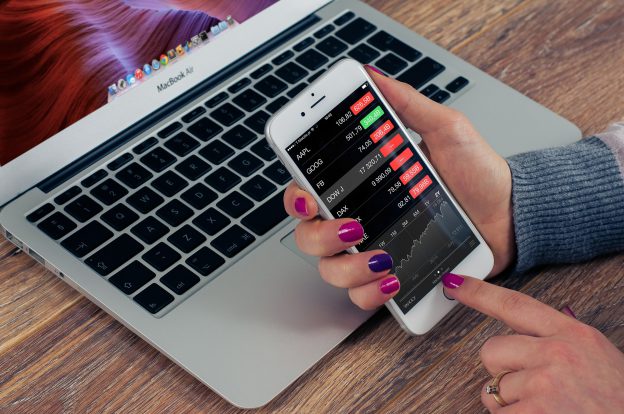Gone are the days of balancing checkbooks and keeping a budgeting journal. With our smartphones consistently at our fingertips, all financial matters are handled in the virtual world. We deposit checks, monitor our spending, and seek financial advice all on our smartphones. What’s more, we have the assistance of widely-lauded applications to make all of this easier.
Thanks to the help of user-friendly and simple financial apps, we’ve become better budgeters, savers, and even day-traders. There are a few apps that are highly regarded for their efficacy in better budgeting and financial tracking, so we’ve listed them below.
#1) Mint by Intuit Inc.
This is the most popular financial app on the market. Provided by Intuit, also known for the widely used QuickBooks and TurboTax programs, it’s an all-in one for developing a budget, tracking your expenses, and delivering effective saving solutions. It allows you to connect your bank/credit card accounts and monthly bills so that you can monitor everything from one place.
Mint’s AI when it comes to assessing your spending habits is also uncanny, as it frequently offers advice that will benefit its users and allow them to save more and spend less. It also offers a free credit score analysis. The best part? It’s free.
#2) Acorns
How does an extra couple hundred dollars in your account at the end of the year sound? Good? We thought so. Any time you make a purchase with a credit card connected to your Acorns app, the app will round it up to the highest dollar and invest the change in a variety of low-cost exchange-traded funds. You can select your risk preference, and let it do its work.
If you don’t know anything about the stock market, don’t worry about it. The Acorns app assesses the best stocks and invests for you. All you have to do is sit back and watch the money roll in.
#3) You Need a Budget
You’re darn right you do! The name of this app says it all, you need a budget and it’s going to help you create one. For individuals with a tendency to overspend, this app is an excellent choice. It takes your income and creates a balanced and realistic budget, categorizing your spending so you can see which categories you spend the most money on (whether it be food, leisure, etc.)
By visually ascertaining overspending habits in the less-necessary categories, users can begin to reallocate that spending into savings, investments, etc. The app offers a 34-day free trial, after which it costs $6.99/month or $83.99/year. Students get 12 months free.
#4) Personal Capital
This one is for the investors among us. With the Personal Capital app, you can manage your assets and investments all from one place. It allows you to track your portfolio by account, asset class, or individual security. Furthermore, it uses built-in intelligence (that works with the combined power of registered financial advisors and robo-advisors) to offer tips on diversification, risk management, and potential hidden fees.
#5) Prism
Let’s face it, we get a lot of bills and it can be hard to remember which ones to pay, when to pay them, and how much to pay. With the Prism app, these concerns are a thing of the past. You can combine all your bills and financial accounts in a single app. It will track your bills and send you reminders when it’s time to pay them. Or, you can use the app to schedule payments ahead of time. The best part of this app? You don’t have to remember your infinite amount of logins for each account.
Finances are stressful enough as it is, with the help of apps however, we can eliminate at least half the worry.

